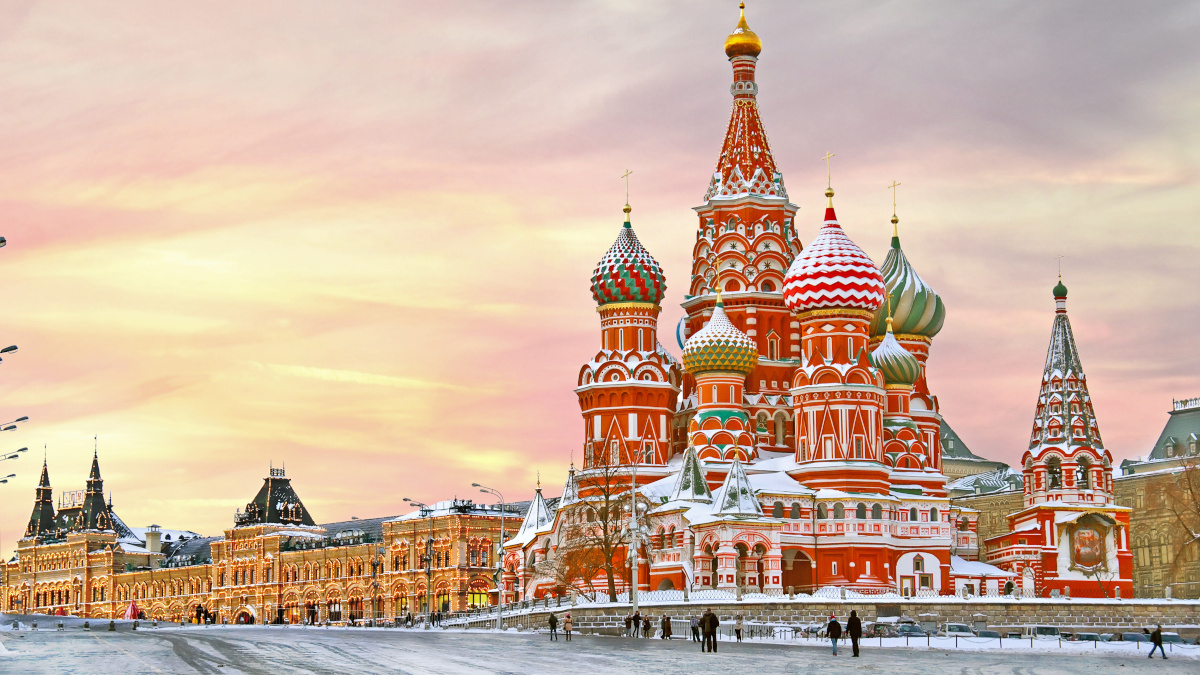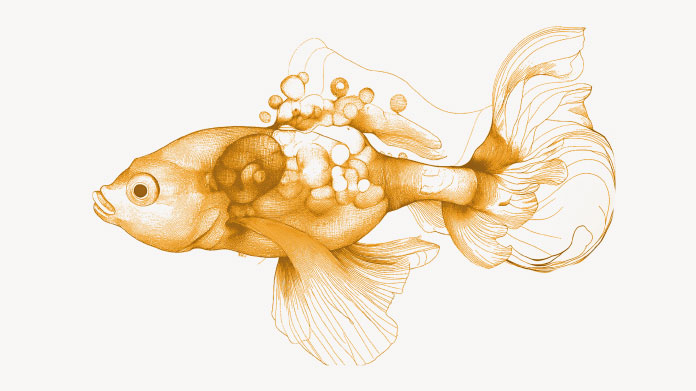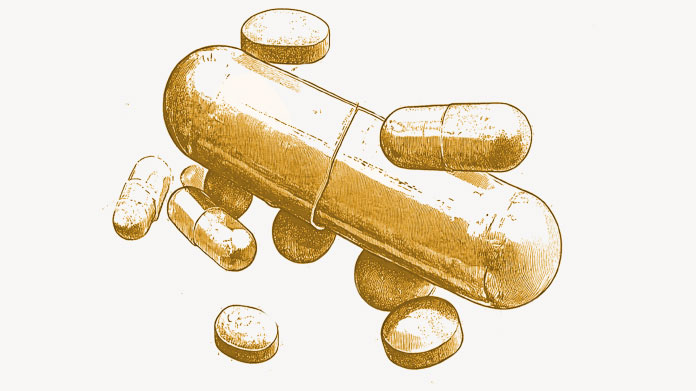Traditional Russian medicine: principles and key substances
Less well-known than Chinese or Ayurvedic medicine, traditional Russian medicine is nonetheless just as popular with Russian citizens. Discover the well-kept secrets of its natural remedies.

Origins of traditional Russian medicine
Traditional Russian medicine is based on ancient Slavic practices passed down through generations of ancestral communities via stories and folk songs, amongst others .
In Russia, healing was traditionally believed to rely on communing well with the forces of nature. In Siberia, that vast region known for its extreme climate and its half-lunar, half-mountainous landscape, this belief was even more pervasive. The traditional medicine is therefore based on a profound and comprehensive knowledge of the plant kingdom, combined with a more spiritual shamanic dimension. In particular, the belief in one’s ability to self-heal is of paramount importance.
Even today, many Russians display a certain mistrust towards modern allopathic treatments, preferring to rely on the remedies of their forefathers. Here, in a few key points, are the main characteristics of these remedies.
Overcoming flower allergies with flowers themselves
The beginnings of homoeopathy? Almost. Traditional Russian medicine features this same principle of ‘like cures like’… especially for moderating allergies to flowers.
The cut-up flowers and their leaves would be immersed in cold water, brought to a boil, and then left to rest for around 15 minutes. A glass of the resulting tea would be drunk over the day in three doses. The allergic reaction would then subside in 3 to 4 days.
Chaga, the Siberian talisman
Long the preserve of the nomadic peoples of Siberia, the medicinal gem that is chaga (Inonotus obliquus) has a particular affinity with Russia’s inhospitably cold climate, where it is found clinging valiantly to the birch trees of the taiga ecoregion.
Widely used by the Nenet, Evenk and Mansi peoples, this fungus was commonly consumed in the form of a decoction for fatigue, cold, hunger or wounds. An invaluable resource given that these peoples’ survival depended solely on hunting, fishing and gathering!
Since the 1980s, this extraordinary mycelium has continued to fascinate the scientific community (1-3). It’s no surprise, then, that it now features in cutting-edge dietary supplements, either on its own (for example, in Organic Chaga Extract, an extract of organic chaga from wild, hand-picked Siberian sporophores) or combined with other mushrooms (as in Organic MycoComplex, which also contains organic extracts of shiitake, reishi, maitake, cordyceps, polyporus and agaricus).
Treating health issues with sounds
For these ancient peoples, it was believed that emitting certain sounds helped combat various physical and mental problems by directly affecting the nervous system. According to them, sounding the syllables:
- “om” soothed hypertonic muscles ;
- “si” reduced stress ;
- “gem” had a positive effect on the heart;
- “shen” supported pulmonaryfunction;
- “yu” had a pain-relieving effect.
Fancy trying it? Repeat your chosen sound 9-12 timespausing for 3 seconds between each repetition. Repeat the same sequence during the day whenever you need to.
Russian discovery of adaptogen plants
While phytotherapy formed the basis of traditional Russian medicine, the discipline has continued to attract interest over the centuries. Did you know, for example, that we have the Soviets to thank for the term ‘adaptogen plant‘? It was actually the Russian pharmacologist Nicolaï Lazarev who first used the term in 1947. As you know, an adaptogen is the term for any natural substance capable of increasing the body’s physical and mental resistance to various forms of stress.
Among the most popular adaptogen plants in Russia is eleutherococcus (Eleutherococcus senticosus) or Siberian ginseng: the root was used to boost the stamina of the Russian military and to improve the ability of Russian cosmonauts to adapt to space (4-5). Another treasure from the taiga, eleutherococcus is now found in synergistic formulations (such as the supplement Adrenal Support, which also contains maca, rhodiola and tulsi, which support the body’s resistance to stress).
Another great adaptogen is rhodiola (Rhodiola rosea). Also known as golden rose, this perennial from the mountains of Siberia helps to improve physical and mental condition and support healthy cardiovascular function, largely as a result of its two active compounds, rosavin and salidroside (6-8). Rhodiola supplementation (with, for example, Rhodiola rosea, a premium quality extract of rhodiola standardized to 5% rosavin and 1.8% salidroside) is a smart way to obtain its benefits.
Do you want to gain maximum benefit from adaptogens? Well, as there’s strength in numbers, it makes sense to choose a supplement that combines several of them in a single formulation (such as Adaptix, which features rhodiola, schisandra and astragalus, a root that helps protect the body against external agents) (9-10).
Natural Slavic recipes for treating everyday ailments
Traditional Russian therapists believed that each fruit, vegetable and herb could help a specific organ. Here’s a small selection of their miracle recipes:
- an infusion of diced red beetroot in cider vinegar is an invaluable elixir for soothing sore throats;
- washing your hair with burdock root and an egg yolk helps maintain a strong head of hair;
- a salad of grated carrot, honey and fruit juice forms an effective detox combo;
- for relief from herpes, there’s nothing like water: just press an ice cube wrapped in a cloth on your lip for 10 minutes up to 3 times a day.
References
- Park YK, Lee HB, Jeon EJ, Jung HS, Kang MH. Chaga mushroom extract inhibits oxidative DNA damage in human lymphocytes as assessed by comet assay. Biofactors. 2004;21(1-4):109-12. doi: 10.1002/biof.552210120. PMID: 15630179.
- Lu Y, Jia Y, Xue Z, Li N, Liu J, Chen H. Recent Developments in Inonotus obliquus (Chaga mushroom) Polysaccharides: Isolation, Structural Characteristics, Biological Activities and Application. Polymers (Basel). 2021;13(9):1441. Published 2021 Apr 29. doi:10.3390/polym13091441
- Géry A, Dubreule C, André V, et al. Chaga (Inonotus obliquus), a Future Potential Medicinal Fungus in Oncology? A Chemical Study and a Comparison of the Cytotoxicity Against Human Lung Adenocarcinoma Cells (A549) and Human Bronchial Epithelial Cells (BEAS-2B). Integr Cancer Ther. 2018;17(3):832-843. doi:10.1177/1534735418757912
- Kuo J, Chen KW, Cheng IS, Tsai PH, Lu YJ, Lee NY. The effect of eight weeks of supplementation with Eleutherococcus senticosus on endurance capacity and metabolism in human. Chin J Physiol. 2010 Apr 30;53(2):105-11. doi: 10.4077/cjp.2010.amk018. PMID: 21793317.
- Yamauchi Y, Ge YW, Yoshimatsu K, et al. Memory Enhancement by Oral Administration of Extract of Eleutherococcus senticosus Leaves and Active Compounds Transferred in the Brain. Nutrients. 2019;11(5):1142. Published 2019 May 22. doi:10.3390/nu11051142
- Li Y, Pham V, Bui M, et al. Rhodiola rosea L.: an herb with anti-stress, anti-aging, and immunostimulating properties for cancer chemoprevention. Curr Pharmacol Rep. 2017;3(6):384-395. doi:10.1007/s40495-017-0106-1
- De Bock K, Eijnde BO, Ramaekers M, Hespel P. Acute Rhodiola rosea intake can improve endurance exercise performance. Int J Sport Nutr Exerc Metab. 2004 Jun;14(3):298-307. doi: 10.1123/ijsnem.14.3.298. PMID: 15256690.
- Maslova LV, Kondrat'ev BIu, Maslov LN, Lishmanov IuB. O kardioprotektornoĭ i antiadrenergicheskoĭ aktivnosti ékstrakta rodioly rozovoĭ pri stresse [The cardioprotective and antiadrenergic activity of an extract of Rhodiola rosea in stress]. Eksp Klin Farmakol. 1994 Nov-Dec;57(6):61-3. Russian. PMID: 7756969.
- Liu J, Nile SH, Xu G, Wang Y, Kai G. Systematic exploration of Astragalus membranaceus and Panax ginseng as immune regulators: Insights from the comparative biological and computational analysis. Phytomedicine. 2021 Jun;86:153077. doi: 10.1016/j.phymed.2019.153077. Epub 2019 Aug 23. Erratum in: Phytomedicine. 2021 Oct;91:153618. Erratum in: Phytomedicine. 2021 Oct;91:153730. PMID: 31477352.
- Panossian A, Wikman G. Pharmacology of Schisandra chinensis Bail.: an overview of Russian research and uses in medicine. J Ethnopharmacol. 2008 Jul 23;118(2):183-212. doi: 10.1016/j.jep.2008.04.020. Epub 2008 Apr 24. PMID: 18515024.
Keywords
18 Hours
Quick shipping
Quick shipping; good price. No issues!
Mary McCarty
2 Days
Thr product is very good and is helping…
Thr product is very good and is helping me on my health. Then is always on time
LUGO Luz
4 Days
Buying was fine
Buying was fine. I had problems with the website not recognizing my login info, and had to call to get it fixed. Other than that, everything was good.
David S. Clark
5 Days
Your super maca and super ginseng are…phenomenal
Your super maca and super ginseng are phenomenal supplements that compliment each other when taking them together. Fantastic feeling of well-being and lots of mid day energy without the crash.
Keith Mason
7 Days
I have had amazing results with every…
I have had amazing results with every supplement I've purchased. I am extremely satisfied with this company
kirstin Torres
7 Days
Fine products
Fine products . They are on the leading edge of online supplements. The only issue -so far-is they sometime run out of subscription items.
Jason Argos
10 Days
The ordering process is very user…
The ordering process is very user friendly and the products always come in a timely manner.
CARTER Rhonda
11 Days
The price for Dr
The price for Dr. Pero's AC-11 is reasonable and in line with his views. (my former colleague). Keep it pure.
CAMPBELL Clayton
14 Days
Right on every time.
Right on every time.
Arthur Nicholas
17 Days
They are cheaper than everyone else and…
They are cheaper than everyone else and the shipping was fast. Great company.
Patricia Adams
23 Days
Availability of quality health…
Availability of quality health supplements and it's wide variety is impressive. Ordering is seamless and shipping even during the holidays is well streamlined.
Mohamad Hussein
38 Days
A Product worth waiting for when not…
A Product worth waiting for when not available and then arriving as a surprise!
DOMINIC
39 Days
On time shipping
On time shipping
GEORGE Verne
41 Days
Ordering was easy and the product was…
Ordering was easy and the product was delivered with no problems. Appreciated that I was notified when it would arrive. Thanks!
MascarC
47 Days
Great customer service - responsive …
I ordered from them and my item was unavailable for sometime. I was super happy when they reactivated my order and shipped my item which arrived very quickly. Great customer service.
Ruth Rueter



